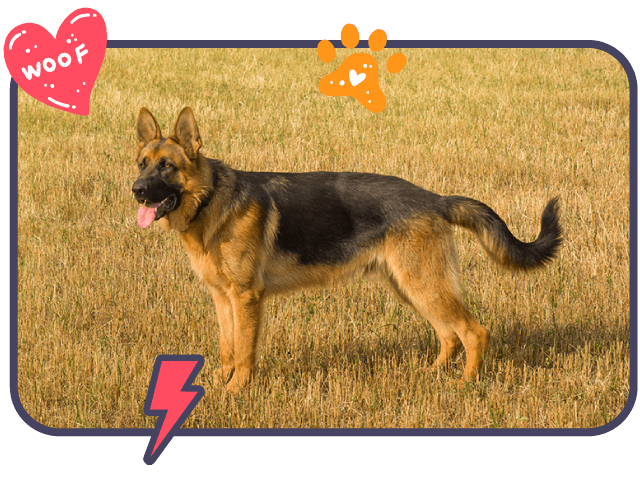
An committed friend who is always up for a new challenges. The German Shepherd is a smart dog breed developed for the purpose of herding sheep. These dogs are smart and can be easily trained because to their cooperative nature. Making them wonderful companions for those who have the time to devote to them.

24-26 inches (male)
22-24 inches (female)

65-90 pounds (male)
50-70 pounds (female)

10-14 years

Friendly, Energetic, Confident

Excellent family pet
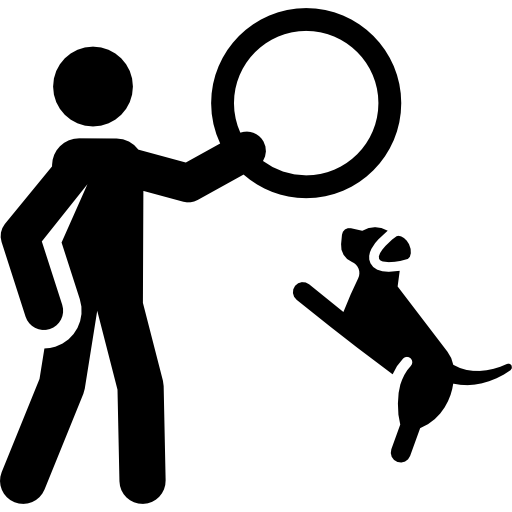
Easy to Train

Loud and frequent barking
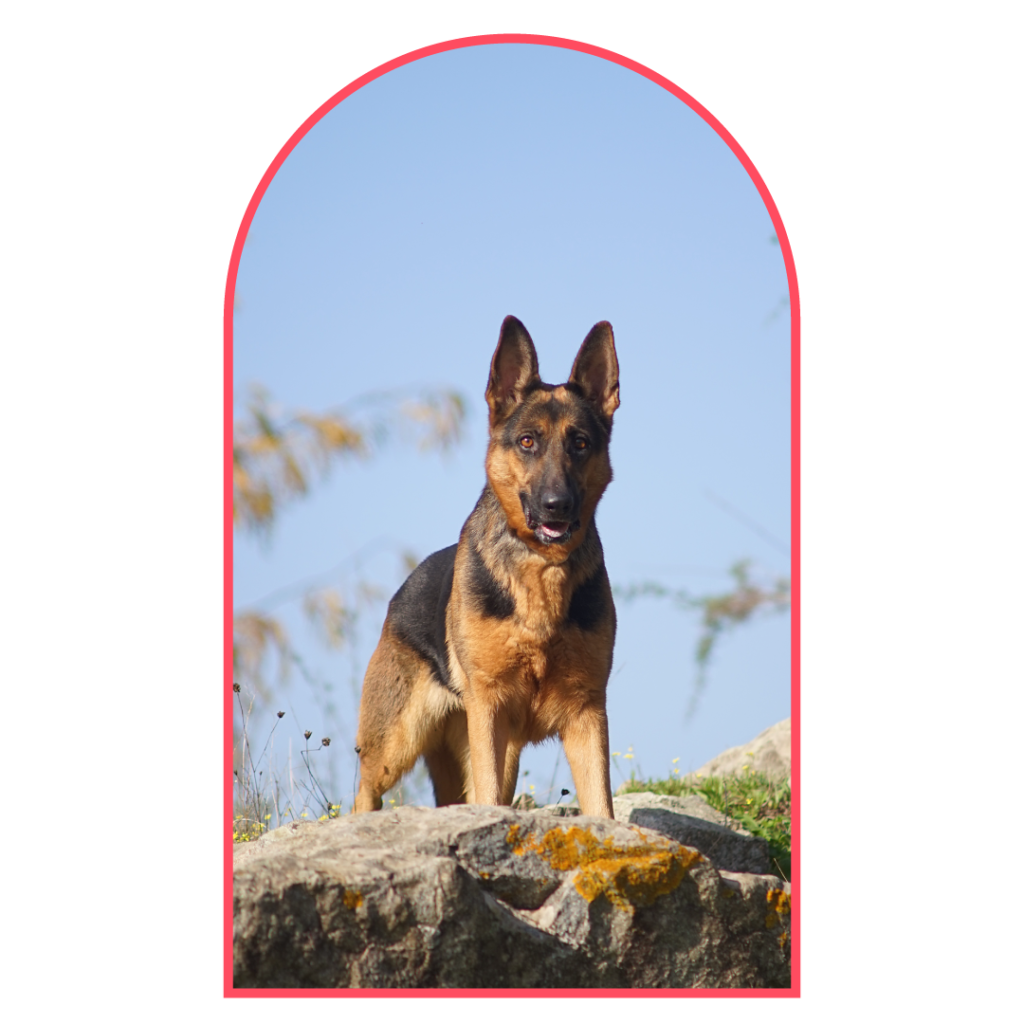

Black/tan, Sable, Black, White

Double coat, Medium-length fur

Have various health issues

Specific Nutritional Needs
German Shepherds are loyal, confident, fearless, and steadfast. When seen in outline, German Shepherd Dogs have smooth, beautiful curves rather than angles. They have a free-and-easy trot, although they can attain high speeds. German Shepherds are known for their loyalty, bravery, confidence, ability to understand orders, and readiness to defend loved ones. The breed standard states German Shepherds have a ‘aloofness that does not lend themselves to instant and indiscriminate friendships.’
German Shepherds are quite energetic, therefore they require a lot of exercise and nutrition with plenty of calories, as well as frequent grooming.
The German Shepherd’s intelligence, desire to please, and suitability to training have made it one of the world’s most useful dog breeds.
Training Tips
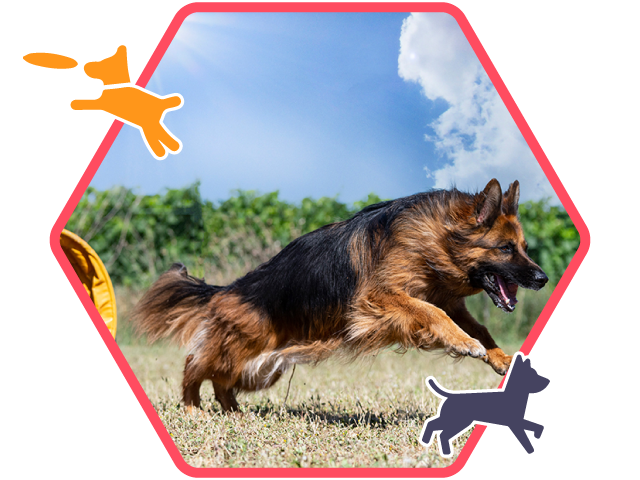
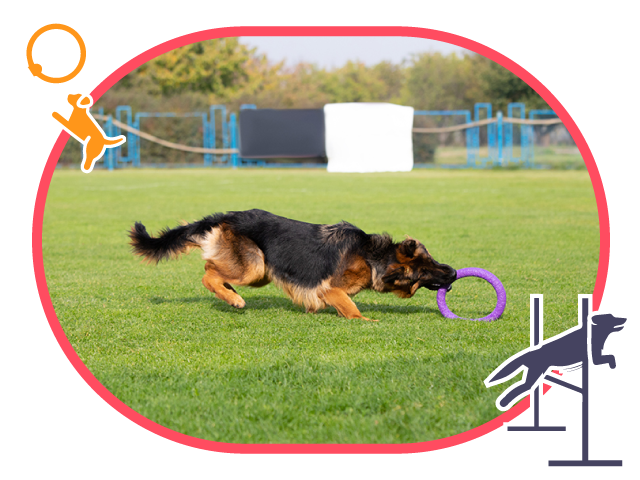
Exercise
Game ideas
German Shepherds are more susceptible to some diseases than other dog breeds. Recent claims data is given to shed light on certain health concerns that have been reported more often in German Shepherds than in any other dog breed.
Be aware of These Health Issues
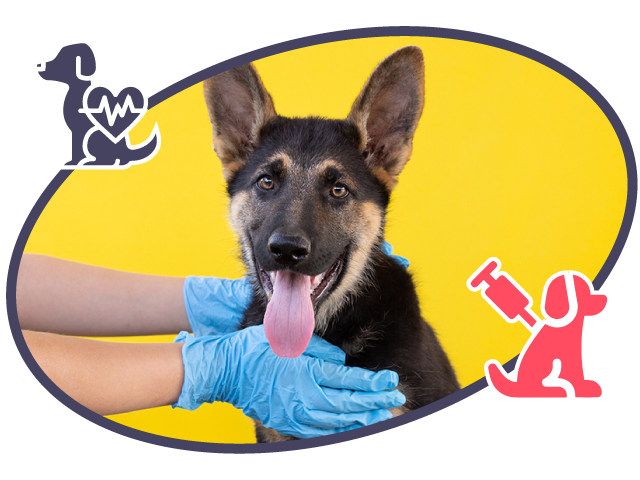
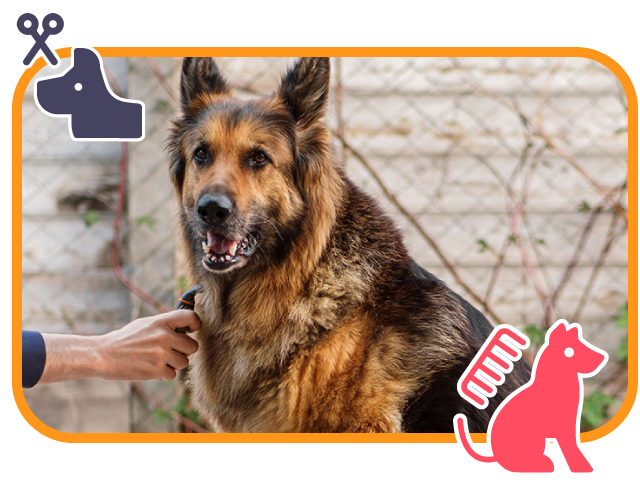
German Shepherds require frequent grooming since their thick hair sheds and provides only little protection from the outdoors.
Your German Shepherd requires a diet that provides enough of calories for a big, energetic dog while also keeping it at a healthy weight.
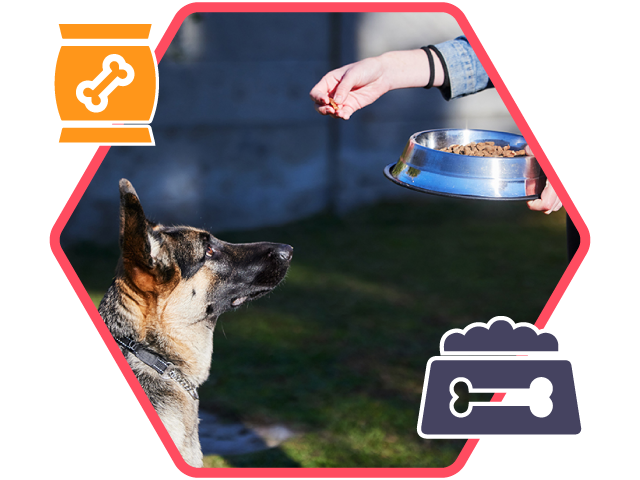
Late in the nineteenth century, Max von Stephanitz was the one responsible for establishing the German Shepherd breed in Germany. He was on the lookout for the ideal herding dog, one that had intelligence as well as obedience and strength.
Von Stephanitz was attending a dog show when he came across a canine that had all of the qualities he had been searching for. Von Stephanitz decided to acquire the canine and give him the name Horand von Grafrath. Horand is credited with having established the foundation for the German Shepherd breed.
Von Stephanitz began breeding Horand and other dogs with comparable features, selecting each trait with great care so that it might be passed down to subsequent generations. He believed that the German Shepherd breed needed to be versatile, in that it ought to be able to perform duties for the police, the military, and search and rescue organisations.
During World War I, both the Allies and the Central Powers made extensive use of German Shepherds in their armies. They were used as messengers, as guard dogs, as scout dogs, and even as ambulance dogs, carrying supplies and wounded soldiers from one location to another. They were also used as parachute dogs, jumping out of aeroplanes with their human companions.
Following World War II, German Shepherds saw a surge in popularity around the globe, particularly in the United States. The American Kennel Club granted official recognition to the breed in 1908.
Even in the modern day, German Shepherds remain one of the most popular dog breeds all over the globe. They are treasured pets in homes as well as working dogs for the police, the military, and search and rescue organisations.
The breed has evolved throughout the course of time, with several lines being formed for a variety of different causes. On the other hand, the breed standard has remained relatively unchanged throughout time, and German Shepherds are still prized for their intelligence, loyalty, and adaptability.
German Shepherd is the most popular and recognizable dog breed among everyone else.
German Shepherd dogs are well-known for their intelligence, loyalty, and adaptability.
German Shepherds are recognizable by their black and tan coats, however they may also be full black or white.
German Shepherds are superb swimmers that like playing in the water.
German Shepherds can run at speeds of up to 30 miles per hour.
German Shepherds are devoted to their family and make excellent protection dogs.
German Shepherds were developed in Germany in the late 1800s as a working dog to herd sheep.
For decades, German Shepherds have served as police and military dogs.
They have a keen sense of smell and may be taught to assist in search and rescue operations.
Their double coat loses extensively twice a year.
They can learn over 100 different instructions and are extremely trainable.
They may reach weights of up to 90 pounds.
They are an excellent breed for busy households since they need frequent exercise.
They were developed in Germany in the late 1800s as a herding dog, but rapidly became famous for their many other abilities.
With their black and brown coats and huge, muscular frame, German Shepherds have a striking appearance. They are a huge breed that may weigh up to 90 pounds and survive for up to 13 years.
like other breeds, have certain possible health concerns to be mindful of, including as hip dysplasia and bloat. However, with proper care and screening, they can live long and healthy lives.
Overall, German Shepherds are an excellent breed that can be taught to do a variety of tasks, making them one of the most popular breeds in the world. They are an excellent option for families seeking a clever, loyal, and adaptable companion.
